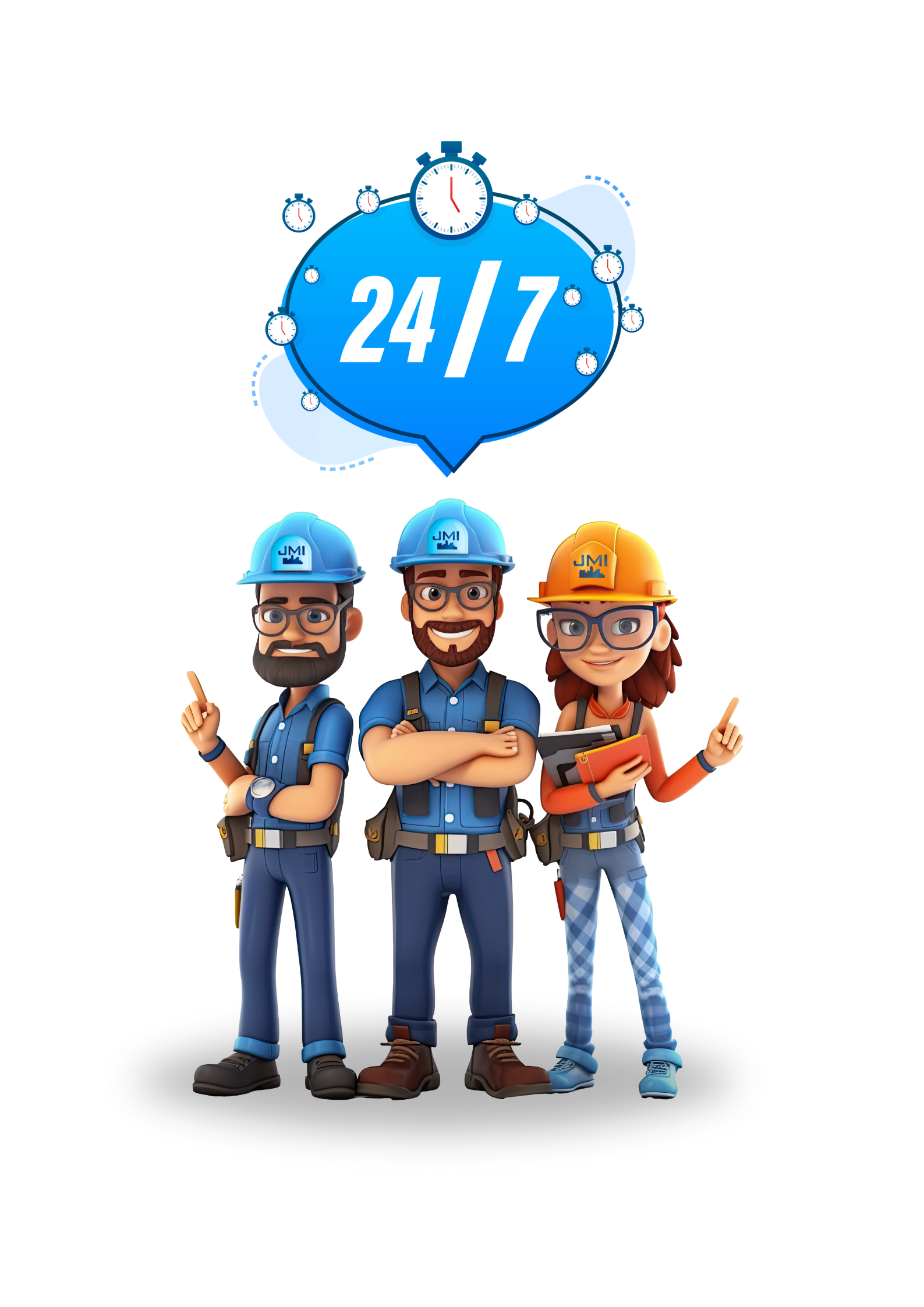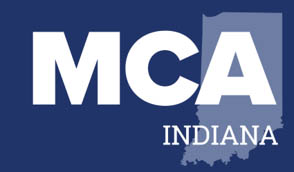DATA CENTER EQUIPMENTS
When you choose JMI Mechanical, you’re getting skilled and friendly technicians with a trustworthy brand and reputation. We take pride in our work because we genuinely enjoy what we do, and it reflects in our service!
Data Center Equipment
Data centers are like the heart of our digital world. They’re super important because they store, process, and share huge amounts of information. All the fancy gadgets and systems that make these data centers work smoothly are called data center equipment.
Think of data center equipment as the tools and machines that keep everything running smoothly in a data center. There are lots of different parts, like servers (which store and manage data), networking devices (which help computers talk to each other), cooling systems (to keep everything from overheating), and security measures (to keep the data safe from hackers).
With all this equipment, data centers are able to do their job properly. They need these tools to make sure everything runs safely, reliably, and efficiently.
Data Center Equipment Explained
In a data center, which is like a giant brain for storing and managing information, there are three main types of equipment: servers, networking gear, and storage systems.
Servers: Think of servers as the busy bees inside a data center. They do all the heavy lifting, running programs, storing data, and responding to requests from users. There are different kinds of servers, like the ones that slide into racks, others that stack up like blades, and some that stand alone like towers. Each type is designed to fit different needs for performance and space.
Networking Equipment: Just like roads and bridges help cars move around a city, networking equipment helps data move around a data center. This includes routers, switches, and firewalls. They make sure all the servers and devices can talk to each other inside the data center, and they also help connect the data center to the outside world, like the internet.
Storage Systems: Imagine storage systems as giant filing cabinets where the data is kept. They’re super important for managing and finding all the information stored in a data center. There are different kinds of storage systems, from old-fashioned disk drives to fancy solid-state drives (SSDs) and storage arrays. They handle storing, finding, and organizing all the data.
Keeping Data Centers Running Smoothly
To keep data centers running smoothly, it’s crucial to control temperature and humidity levels just right. If the equipment gets too hot or too damp, it can break down. Special cooling systems, like air conditioners and chillers, team up with airflow tools to prevent overheating and make sure the equipment lasts a long time.
Powering Up: Data center machines need a strong power setup to keep working nonstop. This setup includes things like backup power supplies, power distribution units, backup generators, and electrical systems. These are all there to make sure the power never goes out and causes any trouble.
Tight Security: Data centers are like fortresses when it comes to security. They have strict measures to stop anyone who shouldn’t from getting in. This includes cameras, fancy locks that need fingerprints or eye scans, and alarms to alert if anything goes wrong.
Keeping an Eye Out: Monitoring software is a big deal in data centers. It helps keep track of how everything’s doing in real time. It can spot problems before they get big, so the people running the data center can fix them fast and keep things running smoothly.
Data centers need to control temperature and humidity, keep the power flowing, stay secure, and keep an eye on everything. It’s like running a giant, high-tech machine that never gets a break.
Different Ways Data Centers Stay Cool
In data centers, where lots of electronic equipment works hard, keeping things cool is crucial. There are a few main ways they do this:
Air-based Cooling Systems: These systems use air to cool things down. They have air conditioners and fans to blow cool air around and push out hot air generated by the equipment.
Liquid-based Cooling Systems: Instead of using air, these systems use liquid to absorb and carry away heat. They circulate a special liquid through pipes or directly over hot components, pulling the heat away more efficiently.
Hybrid Cooling Systems: These systems are like a mix of the other two. They use both air and liquid cooling techniques to get the best of both worlds. This way, they can adapt to the specific needs of the data center and keep everything running smoothly.
Each of these cooling systems has its pros and cons. Air cooling is simpler and cheaper but may be less efficient in really hot environments. Liquid cooling is more efficient but can be more complex and expensive to set up. Hybrid systems try to balance these factors to keep data centers cool and working well.
Components of Data Center Cooling Systems
Data center cooling systems consist of various components working together to regulate temperature and maintain optimal conditions for equipment operation.
Cooling Units: These units, such as air conditioners or cooling towers, are responsible for generating cool air or liquid to dissipate heat.
Air Handlers: Air handlers distribute cool air throughout the data center and remove hot air to maintain uniform temperatures.
Chillers: Chillers are used in liquid cooling systems to remove heat from the coolant before recirculating it back into the system.Cooling Towers: Cooling towers dissipate heat from liquid coolants by exposing them to ambient air, effectively cooling them down for reuse in the system.
Efficiency and Energy Consumption
Efficiency is a key consideration in data center cooling, as inefficient systems can lead to excessive energy consumption and operational costs. Factors such as airflow management, equipment layout, and environmental conditions can impact the efficiency of cooling systems.
Challenges in Data Center Cooling
Data center cooling is a critical aspect of data center operations, facing a myriad of challenges in today’s digital landscape. From managing heat density to optimizing airflow and reducing environmental impact, the complexities of maintaining the ideal temperature are multifaceted. Innovative solutions and strategic planning play a pivotal role in addressing these challenges effectively. By implementing cutting-edge technologies and sustainable practices, data centers can achieve efficient cooling, reduce energy consumption, and minimize their environmental footprint, making a sustainable future.
Importance of Proper Cooling in Data Centers
Proper cooling is essential for maintaining equipment performance, reliability, and longevity in data centers. Inadequate cooling can lead to equipment failures, reduced lifespan, and increased downtime, resulting in significant financial and operational consequences for businesses.
Significance of Data Center Equipment
The efficient operation of data center equipment is paramount for businesses and organizations reliant on digital infrastructure for their day-to-day operations. By investing in state-of-the-art equipment and implementing best practices in design and management, companies can ensure the seamless delivery of services and maintain a competitive edge in today’s digital landscape.

Reach Out To Us!
Reach out to us!
In conclusion, data center equipment forms the cornerstone of modern business operations, enabling the storage, processing, and distribution of digital information on a massive scale. From servers and networking devices to cooling systems and security measures, each component plays a vital role in ensuring the reliability, security, and efficiency of data center operations. As technology continues to evolve, the importance of robust data center equipment will only grow, driving innovation and reshaping the future of digital infrastructure.
Do you have any questions or need advice? Feel free to reach out to us by giving us a call at 317-243-7180. We’re here to help and offer customized guidance based on your specific needs.
FREE QUOTE
Do you need help with HVAC or Plumbing service or maintenance? Fill out this form to get in touch with JMI Mechanical.
OFFICE LINE
ADDRESS
5610 Dividend Rd. Suite A, Indianapolis, IN 46241
WORKING HOURS
OPEN 24/7/365
OFFICE LINE
ADDRESS
5610 Dividend Rd Suite A, Indianapolis, IN 46241
WORKING HOURS






